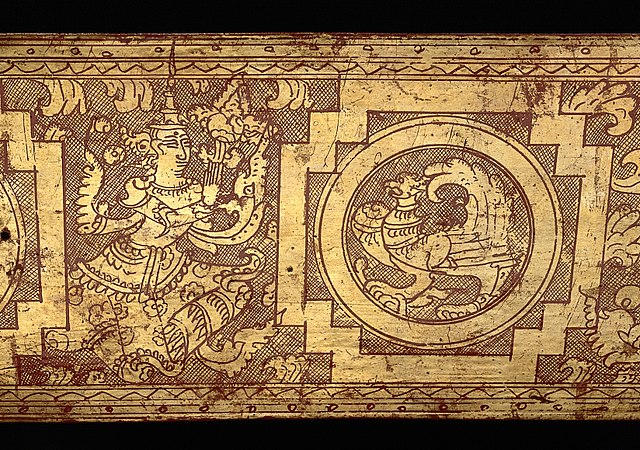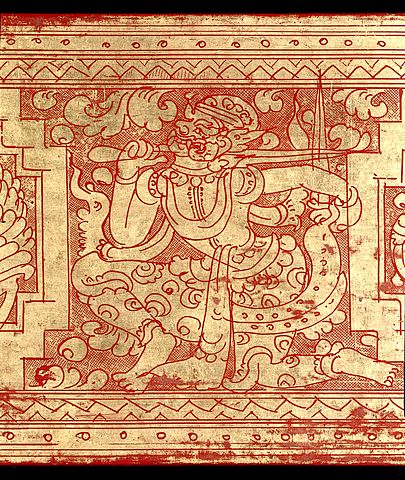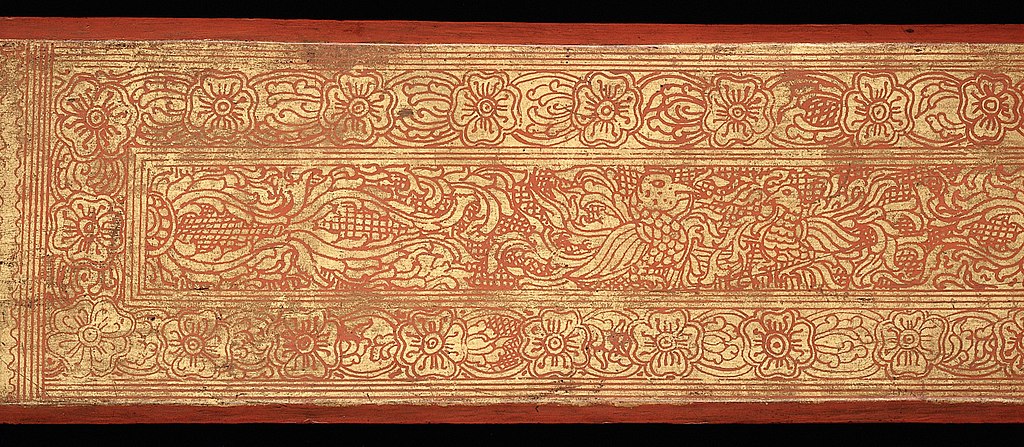
On Tuesday 24 September 2019, the Thammasat University Faculty of Sociology and Anthropology, presents Alternative Models of Ethical Practice: Amateur Excavation, Conservation, and Curation of Antiquities in Myanmar, part of a lecture series on Dynamics and Diversity of Museums in Southeast Asia.
The Thammasat University Library owns many books about archaeology, a number of which also deal with ethical aspects of research.
The speaker will be Jessica Wiseman, an independent scholar based in Yangon, Myanmar and Bangkok. Her research is focused on the ethics of archaeology and heritage policy, particularly in relation to community rights. She has master of arts degrees in religious studies from the University of Edinburgh and in archaeology and heritage from the University of Leicester.
The event will take place from 1:30pm to 4pm in room LA 302 on the third floor of the Faculty of Liberal Arts building, Thammasat University, Tha Prachan campus. The TU community is welcome to attend, and are asked to register online in advance at this link.
For more information, please contact the email address tusa.postgrads@gmail.com.

Archaeological ethics
Archaeological ethics refers to the moral issues raised through the study of the material past. It is a branch of the philosophy of archaeology.
Asall TU students who have taken a class in archeology know, the challenge is not just to dig up or discover hidden treasures but to know what to do with them afterwards. The Archaeological Institute of America (AIA) has a Code of Professional Standards approved in 1997. Among general ethical considerations to keep in mind as research is planned and conducted are the following:
Responsibilities to the Archaeological Record
- Professional archaeologists incur responsibilities to the archaeological record?the physical remains and all the associated information about those remains, including those located under water.
- Professional archaeologists should adhere to the Guidelines of the AIA general Code of Ethics concerning illegal antiquities in their research and publications.
- The purposes and consequences of all archaeological research should be carefully considered before the beginning of work. Approaches and methods should be chosen that require a minimum of damage to the archaeological record.Although excavation is sometimes the appropriate means of research, archaeological survey, study of previously excavated material, and other means should be considered before resort is made to excavation.
- The recovery and study of archaeological material from all periods should be carried out only under the supervision of qualified personnel.
- Archaeologists should anticipate and provide for adequate and accessible long-term storage and curatorial facilities for all archaeological materials, records, and archives, including machine-readable data, which require specialized archival care and maintenance.
- Archaeologists should make public the results of their research in a timely fashion, making evidence available to others if publication is not accomplished within a reasonable time.
- All research projects should contain specific plans for conservation, preservation, and publication from the very outset, and funds should be secured for such purposes.
Responsibilities to the Public
- Because the archaeological record represents the heritage of all people, it is the responsibility of professional archaeologists to communicate with the general public about the nature of archaeological research and the importance of archaeological resources. Archaeologists also have specific responsibilities to the local communities where they carry out research and field work, as well as to their home institutions and communities.
- Archaeologists should be sensitive to cultural mores and attitudes, and be aware of the impact research and fieldwork may have on a local population, both during and after the work. Such considerations should be taken into account in designing the project’s strategy.
- Professional archaeologists should be actively engaged in public outreach through lecturing, popular writing, school programs, and other educational initiatives.
- Plans for field work should consider the ecological impact of the project and its overall impact on the local communities.
- Professional archaeologists should not participate in projects whose primary goal is private gain.
- For field projects, archaeologists should consult with appropriate representatives of the local community during the planning stage, invite local participation in the project, and regularly inform the local community about the results of the research.
- Archaeologists should respect the cultural norms and dignity of local inhabitants in areas where archaeological research is carried out.
- The legitimate concerns of people who claim descent from, or some other connection with, cultures of the past must be balanced against the scholarly integrity of the discipline. A mutually acceptable accommodation should be sought.
Responsibilities to Colleagues
- Professional archaeologists owe consideration to colleagues, striving at all times to be fair, never plagiarize, and give credit where due.
- Archaeologists involved in cooperative projects should strive for harmony and fairness; those in positions of authority should behave with consideration toward those under their authority, while all team members should strive to promote the success of the broader undertaking.
- The Principal Investigator(s) of archaeological projects should maintain acceptable standards of safety and ascertain that staff members are adequately insured.
- Professional archaeologists should maintain confidentiality of information gleaned in reviewing grant proposals and other such privileged sources.
- Professional archaeologists should not practice discrimination or harassment based on sex, religion, age, race, national origin, disability, or sexual orientation; project sponsors should establish the means to eliminate and/or investigate complaints of discrimination or harassment.
- Archaeologists should honor reasonable requests from colleagues for access to materials and records, preserving existing rights to publication, but sharing information useful for the research of others. Scholars seeking access to unpublished information should not expect to receive interpretive information if that is also unpublished and in progress.
- Before studying and/or publishing any unpublished material archaeologists should secure proper permission, normally in writing, from the appropriate project director or the appointed representative of the sponsoring institution and/or the antiquities authorities in the country of origin.
- Scholars studying material from a particular site should keep the project director informed of their progress and intentions; project directors should return the courtesy.
- Members of cooperative projects should prepare and evaluate reports in a timely and collegial fashion.

Ethics of archaeology in Thailand
In July 2015, at the 15th International Conference of the European Association of Southeast Asian Archaeologists held at the Université Paris Ouest Nanterre la Défense, Ajarn Rasmi Shoocongdej of the Faculty of Archaeology of Silpakorn University presented a paper on Ethics of archaeological practices in northwest Thailand.
Ajarn Rasmi’s abstract noted that a major challenge in the globalized world for professional practice is the relationship between archaeologists and capitalism, specifically, the marketing of cultural heritage as archaeological sites, objects and research become valuable commodities for tourism.
It continued:
While archaeological sites can serve as tourist attractions, research is valued for the production of relevant knowledge, generally concerning cultural identities and historical meanings. Archaeology has become a part of economic development, and archaeologists are working increasingly with the business sector on heritage management in their research areas. Contemporary archaeologists can no longer focus only on scientific research, they must also work with different interest groups whose use of archaeology may have positive and negative consequences. Archaeologists need to be aware of their ethical and political roles when archaeology is used for economic development and other public policy goals at the local, national and international levels. In recent years the ethical issues involved in working with multiple communities or multi-ethnic groups have become important concerns for archaeologists globally. Thai archaeologists generally have not focused on these issues, although there are many minority ethnic groups in Thailand, especially near the borders with neighboring countries. The challenge now is to integrate professional ethics and multiple communities’ views in the heritage management. This paper will examine how archaeologists negotiate their ethical responsibilities in working with the multiple communities and assist the local control of heritage tourism. Archaeological, anthropological and historical evidences in Mae Hong Son province, a borderland between Thailand and Myanmar will be examined and discussed.

(All images courtesy of Wikimedia Commons)
